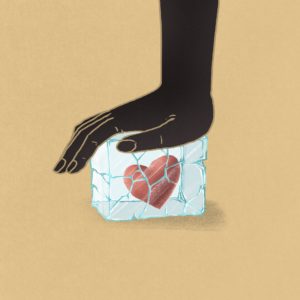
If you’ve followed me for any length of time, you know that I like to listen to audiobooks while running, and then share what I’ve learned with you. Right now I’m listening to a Brené Brown Audible original, called The Power of Vulnerability. It was created from a series of lectures she gave in 2012. Of course, as I’m listening to her talk about polarisation and isolation, I can only sigh and say, oh sweetheart, if only you knew what was coming. But this was the year that her most well-known book, Daring Greatly, came out, and I was reminded of some really important concepts from that book, and I’d like to share one of them with you.
In Chapter 4, The Vulnerability Armory, she talks about various ways we try to protect ourselves from vulnerability and pain. A major one is numbing out – using substances, activities or behaviours to distract ourselves from feeling pain and anxiety. Addiction, of course, is an extreme form of numbing out – but it seems to be a matter of degree, rather than kind. Having a glass of wine every night to “take the edge off” our stress might not seem as bad as getting blackout drunk, and of course it is less destructive in the short term – but it’s the same attempt to avoid dealing with what is really wrong. Numbing out behaviours can involve substances such as drugs or alcohol, but also excessive food, sex, shopping, television, video gaming and of course that perennial North American favourite, work. In a society where exhaustion and overwork are still a badge of honour, being “crazy busy” is a very acceptable way to avoid dealing with the real issues.
Being a therapist, of course, Dr. Brown offers solutions as well as diagnoses. I find particularly fascinating that she found that people who were able to avoid numbing out experienced the same stresses and anxiety as others, but were better able to set boundaries – rather than finding dysfunctional ways to carry the burden, they worked at reducing the burden itself. They also found ways to be truly comforted rather than numbed, but I think the refusal to be exploited and pushed beyond their boundaries is a huge one. This may not be easy, especially for BIPOC who are dealing with additional systemic demands on their strength and energy. Tricia Hersey explores and expresses this beautifully in her recent book, Rest is Resistance: A Manifesto.
I’d love to know – have you found ways to avoid dysfunctional numbing out? I think we could all benefit from sharing strategies on that.
I’ve created a new private Facebook group for this kind of discussion – let me know if you want to be added to it!
